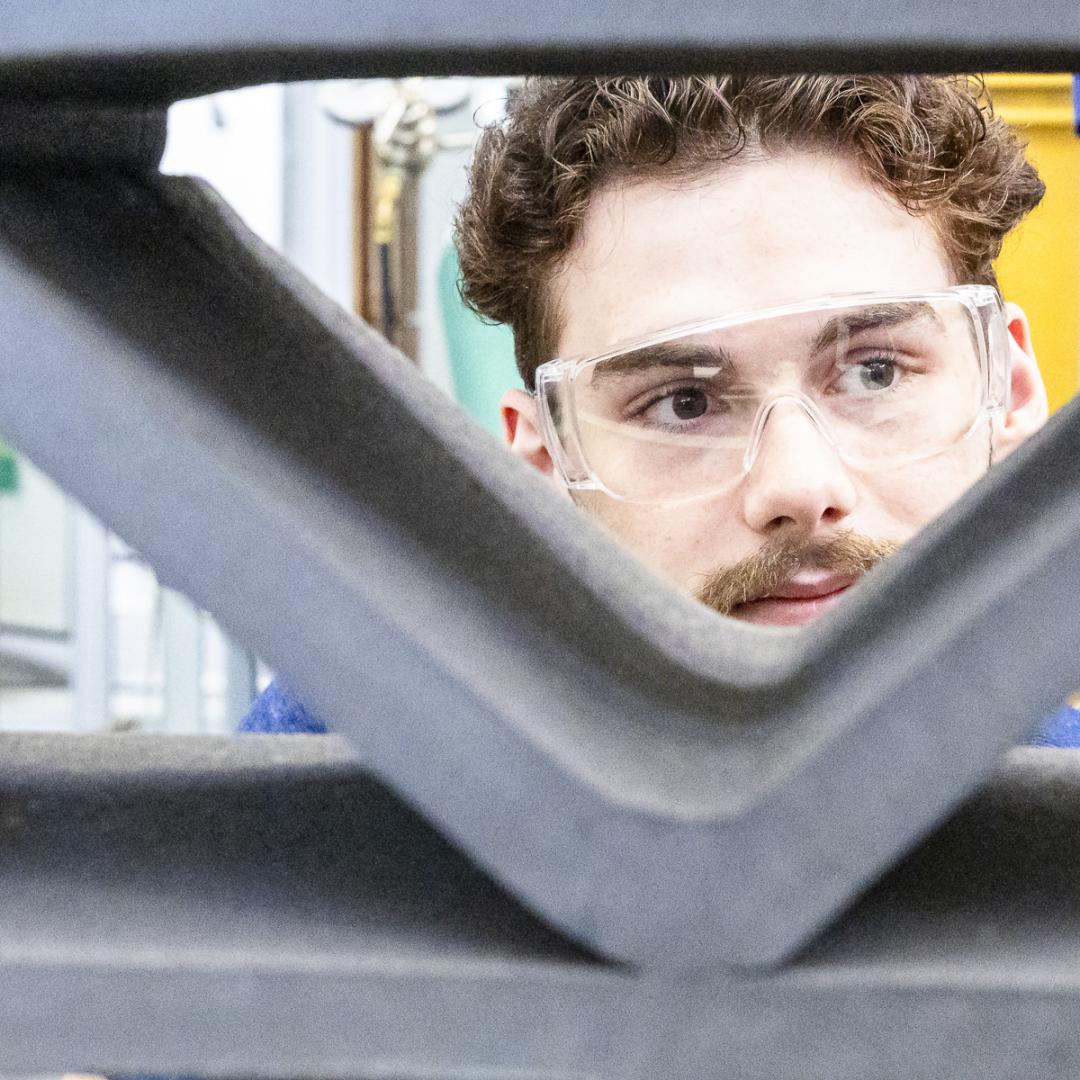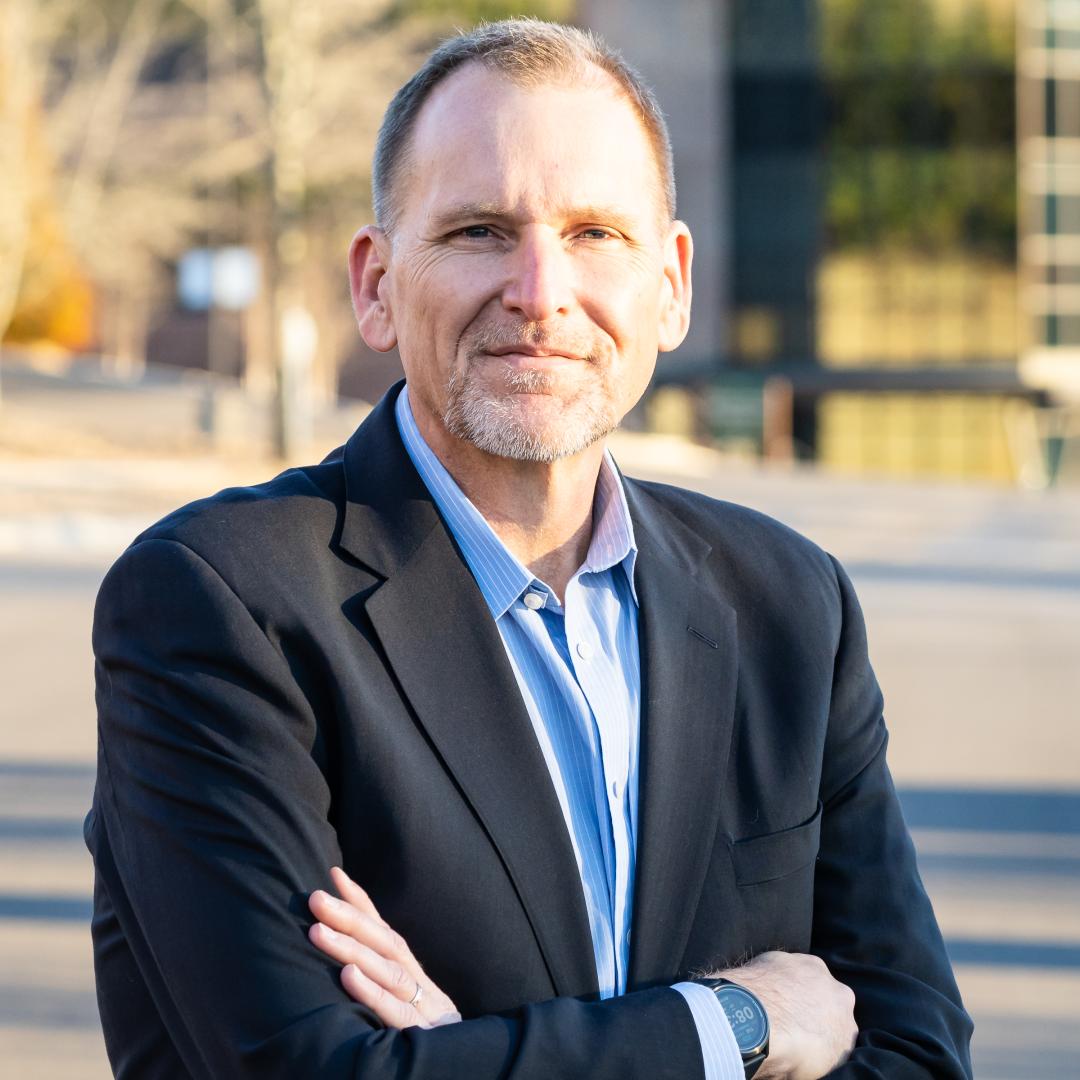Filter News
Area of Research
News Topics
- (-) Chemical Sciences (60)
- (-) Education (4)
- 3-D Printing/Advanced Manufacturing (117)
- Advanced Reactors (34)
- Artificial Intelligence (88)
- Big Data (50)
- Bioenergy (88)
- Biology (96)
- Biomedical (58)
- Biotechnology (21)
- Buildings (55)
- Clean Water (29)
- Climate Change (95)
- Composites (25)
- Computer Science (184)
- Coronavirus (46)
- Critical Materials (25)
- Cybersecurity (35)
- Decarbonization (75)
- Element Discovery (1)
- Emergency (2)
- Energy Storage (108)
- Environment (192)
- Exascale Computing (36)
- Fossil Energy (5)
- Frontier (41)
- Fusion (53)
- Grid (61)
- High-Performance Computing (83)
- Hydropower (11)
- Irradiation (3)
- Isotopes (49)
- ITER (7)
- Machine Learning (46)
- Materials (141)
- Materials Science (137)
- Mathematics (6)
- Mercury (12)
- Microelectronics (2)
- Microscopy (51)
- Molten Salt (8)
- Nanotechnology (60)
- National Security (60)
- Net Zero (12)
- Neutron Science (130)
- Nuclear Energy (105)
- Partnerships (41)
- Physics (59)
- Polymers (31)
- Quantum Computing (31)
- Quantum Science (66)
- Renewable Energy (2)
- Security (24)
- Simulation (45)
- Software (1)
- Space Exploration (25)
- Statistics (3)
- Summit (57)
- Sustainable Energy (122)
- Transformational Challenge Reactor (7)
- Transportation (94)
Media Contacts
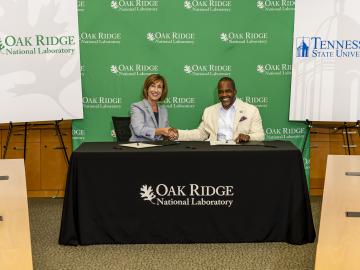
The Department of Energy’s Oak Ridge National Laboratory and Tennessee State University have signed a memorandum of understanding to strengthen research cooperation and provide diverse undergraduate students enriching educational research opportunities at the lab.
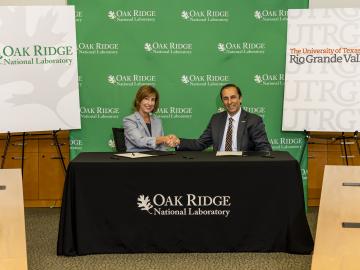
ORNL and the University of Texas Rio Grande Valley, known as UTRGV, have signed a memorandum of understanding to strengthen research cooperation and establish a collaborative program for undergraduate research and education, further cementing hi
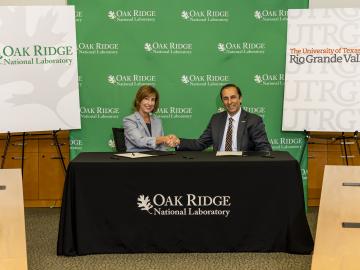
Susan Hubbard, diputada de Ciencia y Tecnología en ORNL, Can (John) Saygin, vicepresidente mayor de investigación y decano del Colegio de la Escuela de Postgrados en UTGRV, firman un Memorándum de Entendimiento comprometiéndose a fortalecer
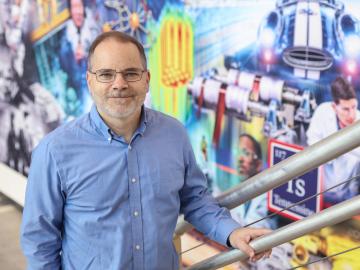
ORNL has been selected to lead an Energy Earthshot Research Center, or EERC, focused on developing chemical processes that use sustainable methods instead of burning fossil fuels to radically reduce industrial greenhouse gas emissions to stem climate change and limit the crisis of a rapidly warming planet.

Using light instead of heat, researchers at ORNL have found a new way to release carbon dioxide, or CO2, from a solvent used in direct air capture, or DAC, to trap this greenhouse gas. The novel approach paves the way for economically viable separation of CO2 from the atmosphere.
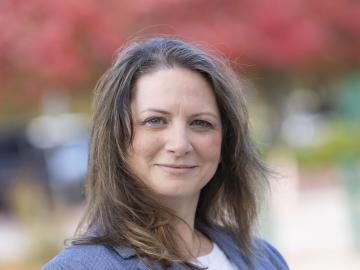
Michelle Kidder, a senior R&D staff scientist at ORNL, has received the American Chemical Society’s Energy and Fuels Division’s Mid-Career Award for sustained and distinguished contributions to the field of energy and fuel chemistry.
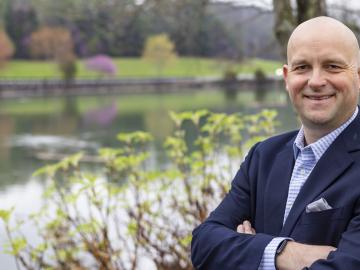
Leigh R. Martin, a senior scientist and leader of the Fuel Cycle Chemical Technology group at ORNL, has been named a Fellow of the American Chemical Society for 2023.
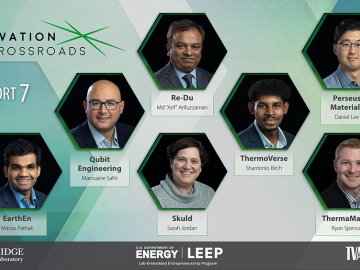
Seven entrepreneurs will embark on a two-year fellowship as the seventh cohort of Innovation Crossroads kicks off this month at ORNL. Representing a range of transformative energy technologies, Cohort 7 is a diverse class of innovators with promising new companies.
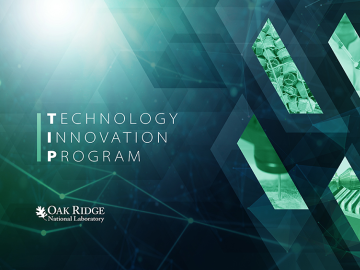
Scientist-inventors from ORNL will present seven new technologies during the Technology Innovation Showcase on Friday, July 14, from 8 a.m.–4 p.m. at the Joint Institute for Computational Sciences on ORNL’s campus.
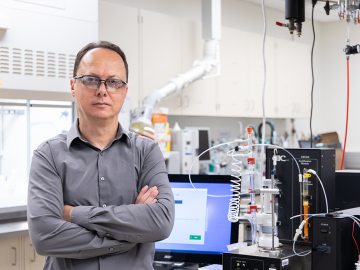
An innovative and sustainable chemistry developed at ORNL for capturing carbon dioxide has been licensed to Holocene, a Knoxville-based startup focused on designing and building plants that remove carbon dioxide



